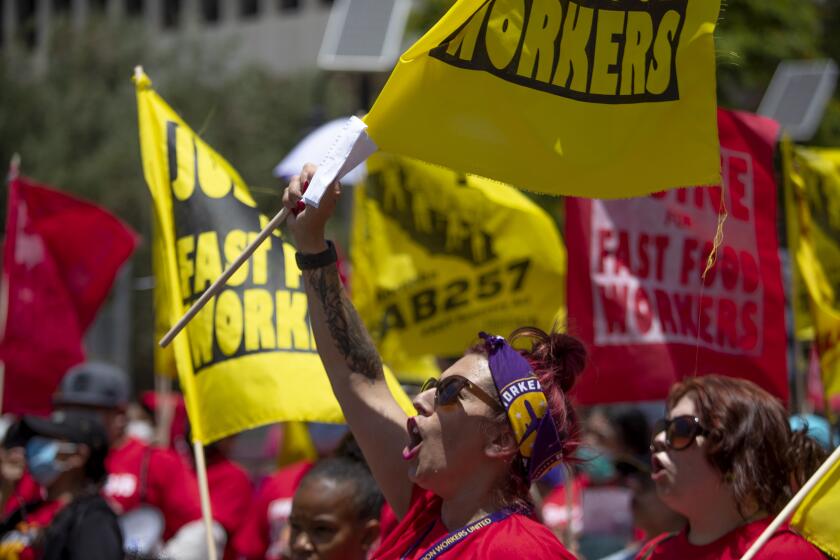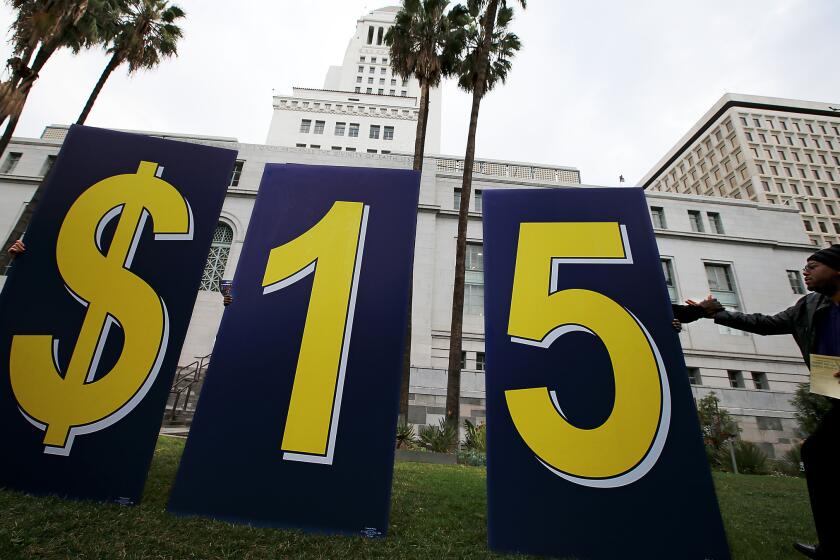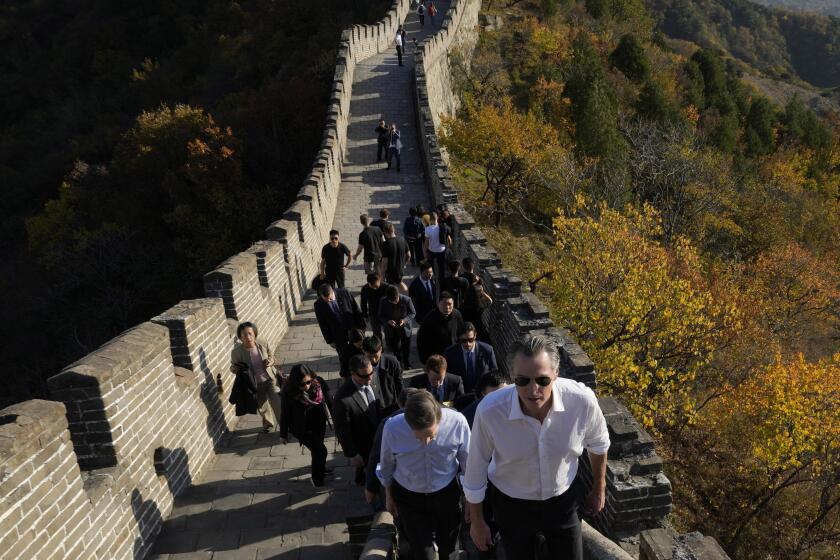Californians knead answers. Did Panera Bread get an exemption from $20 minimum wage law?

- Share via
Even before Gov. Gavin Newsom signed the landmark law in September that would increase the minimum wage for fast-food workers to $20 per hour starting in April, there were some eyebrows raised over the so-called Panera exemption.
The law was designed to boost pay and improve working conditions for employees of fast-food chain restaurants, but it contained an oddly specific carve-out: It wouldn’t apply to restaurants that bake and sell bread as a stand-alone item on the menu.
Gov. Newsom should sign a bill making California the first state with a system for fast-food workers to push for better pay and working conditions.
Now, Bloomberg reports that Newsom pushed behind the scenes for the exemption, which will benefit billionaire Greg Flynn, a campaign donor and business associate who owns two dozen Panera Bread locations in the state.
Flynn runs one of the world’s largest restaurant franchise operations and was a vocal opponent of the law, which sets a fast-food worker wage and creates a Fast Food Council that would hike pay in future years and develop labor, health and safety standards for the covered restaurants.
Flynn, who also attended the same high school as Newsom, contributed $160,000 combined to the governor’s 2021 anti-recall campaign and his 2022 reelection. That’s a lot of dough.
The national minimum wage is way too low, but don’t overlook the trade-offs of raising it.
When questioned about the bread exemption last year, Newsom dismissed it as “part of the sausage-making” of politics. On Thursday, amid rising outrage, Newsom’s office put out a statement calling the Bloomberg story “absurd” and suggesting Panera is not exempt from the law because it mixes the dough at an off-site location and only bakes and sells the bread at the restaurant.
OK, but we’re going to need some proof. Because the carve-out for bakeries has been reported numerous times using Panera as the example of a restaurant that would benefit from the exemption. The governor’s office has yet to explain publicly why the bakery exemption was even warranted. And Assemblymember Chris Holden (D-Pasadena), who carried the bill, said he had nothing to do devising the bread break.
Newsom and legislative leaders need to explain themselves. This sounds exactly like the kind of legislative shenanigans that undermine public confidence. Lawmakers should expect to explain why an exemption from any new law is necessary.
Gov. Gavin Newsom recently returned to planet Earth from the global stratosphere and was smacked with a down-home reality: California voters have turned negative on him.
But it’s difficult to imagine how this one could be justified. How does it make sense that, if a restaurant bakes bread for sandwiches, its workers deserve $20 an hour, but if it sells it as a loaf, its workers don’t?
If you were thinking, well, why doesn’t McDonald’s just start selling the McBaguette in California to avoid the law? The exemption applies only to restaurants that operate on-site bakeries as of Sept. 15, 2023.
This is really a half-baked idea anyway. Anyone who works for Panera or another exempted chain restaurant-bakery can easily switch to another eatery that pays the new minimum wage. This idea so crumby it could have risen only in Sacramento.
More to Read
A cure for the common opinion
Get thought-provoking perspectives with our weekly newsletter.
You may occasionally receive promotional content from the Los Angeles Times.












